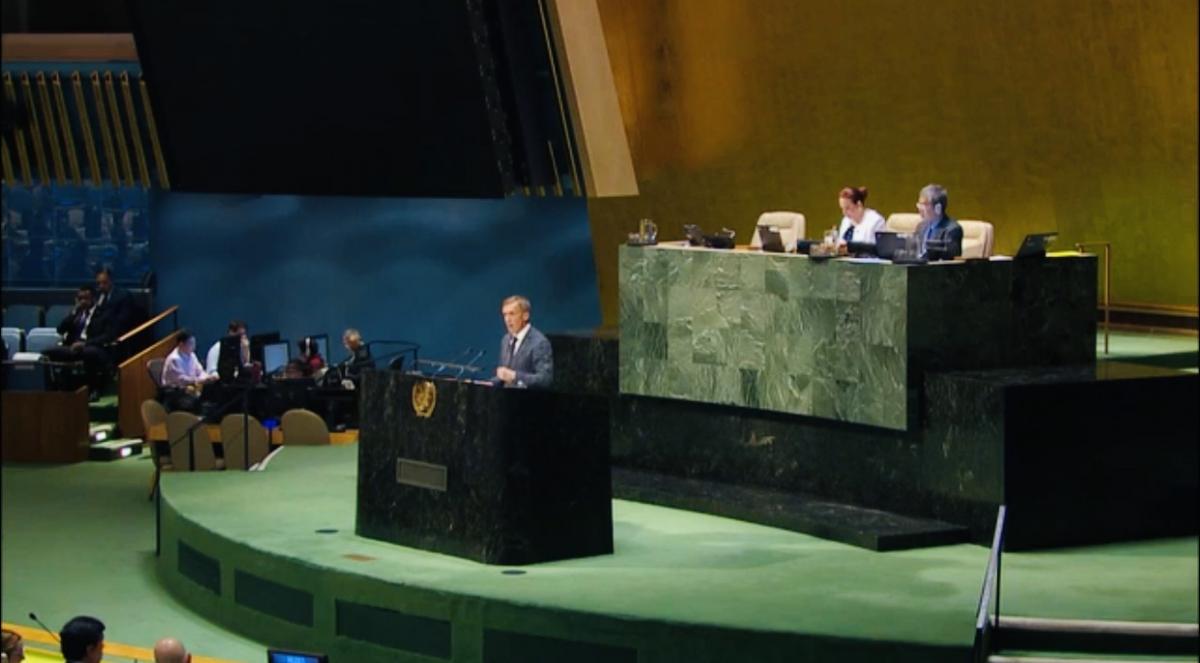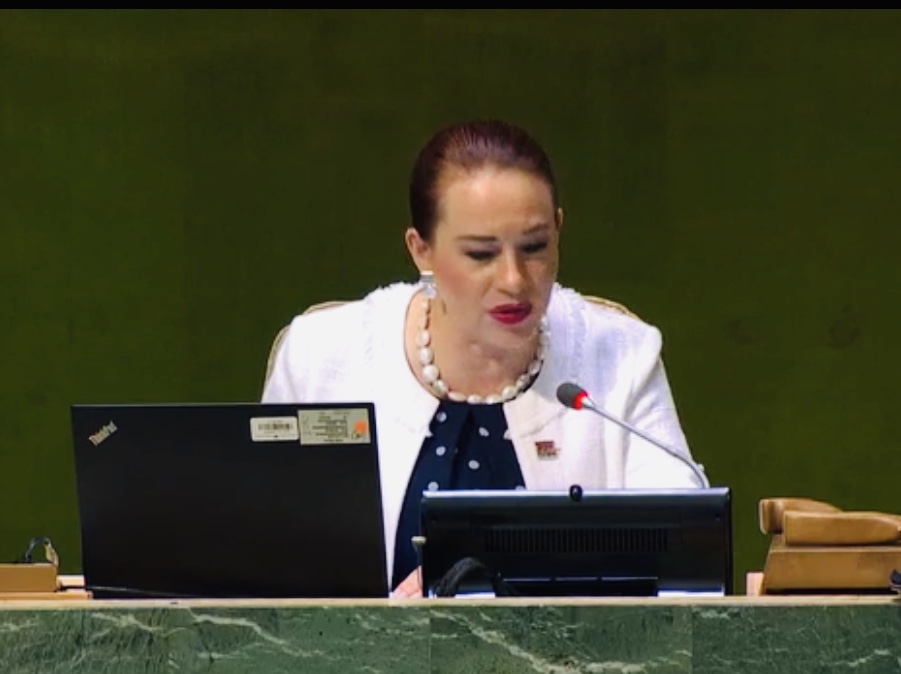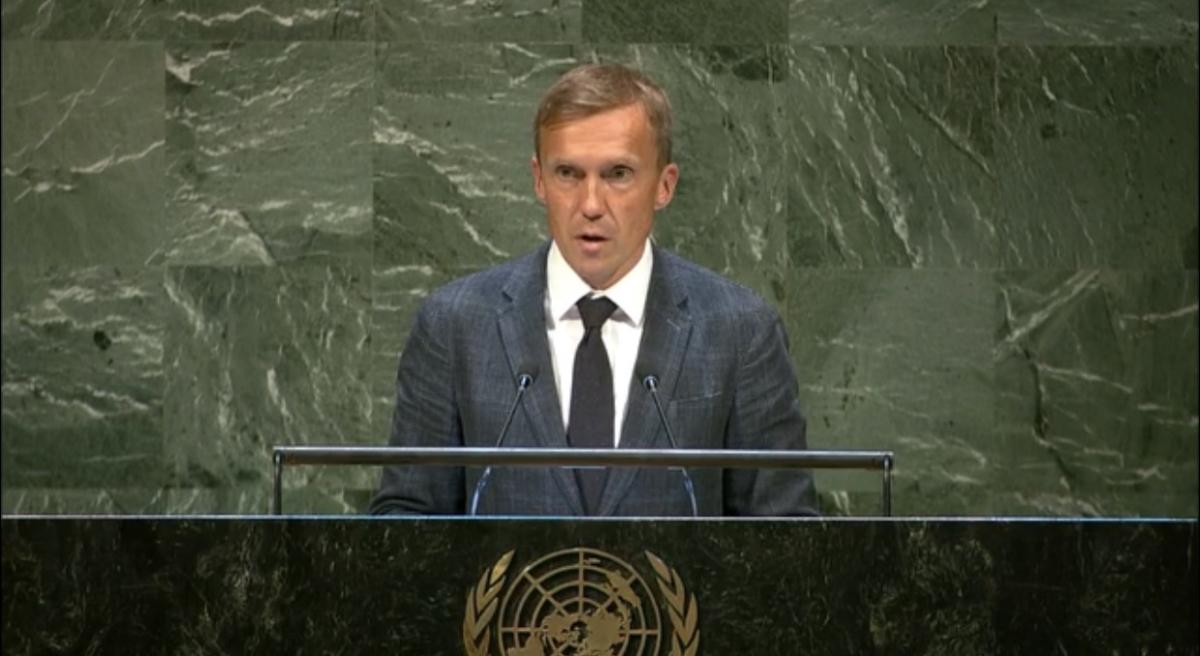The UN General Assembly takes significant steps “Towards a Global Pact for the Environment”
By Victor M. Tafur - On August 30, 2019, the UN General Assembly adopted resolution 73/333 that welcomes the work of the ad hoc open-ended working group established pursuant to General Assembly resolution 72/277, as well as its report, and endorses all its recommendations. The UNGA endorsement is a positive step forward toward strengthening international environmental law and providing institutional and policy steps that are essential for the realization of the Sustainable Development Goals (SDGs).
The ad hoc open-ended working group reviewed the Secretary General’s report of 30 November 2018 on the status of international environmental law and governance. After three substantive meetings in Nairobi during the first semester of 2019, the consensus recommendations constitute a significant milestone towards achieving an enhanced framework of cooperation among States - and of coordination within the UN System - to strengthen the implementation of environmental law and support the full implementation of the 2030 Agenda for Sustainable Development within a precise timeframe in the period 2019-2022. It was important to reach a constructive outcome that can grow in ambition and commitment as all Member States, the entire UN system, and civil society contribute to their implementation.
UNGA resolution 73/333 authorizes the Secretary-General to continue making use of the special voluntary trust fund in support of the process for implementation of the recommendations. In addition, the special voluntary trust fund may be used to facilitate the participation of representatives from developing countries, in particular the least developed countries, landlocked developing countries and small island developing State for future meetings related to the consideration of further work.
The resolution, which had been announced by the European Union at a UN General Assembly briefing on July 9, 2019, was facilitated by Finland, and cosponsored by the 28 EU member countries, plus EU candidate countries Albania, Montenegro, and North Macedonia, as well as potential candidate Bosnia and Herzegovina. Other sponsoring countries for tabling the resolution included Costa Rica, Lebanon, Micronesia, Palau and Uruguay. From the floor, Andorra, Colombia, Fiji, Georgia, Kenya, Lesotho, Monaco, Morocco, San Marina, Senegal and Ukraine also sponsored, totaling 48 countries. The resolution was adopted without a recorded vote.
Only 2 countries took the floor for explanation of the vote. The United States, to maintain prior statements made on the key UN documents mentioned in the considerations, such as the 2030 Agenda for Sustainable Development and the outcome document of the United Nations Conference on Sustainable Development, “Rio+20”, entitled “The future we want”, and to note that the language on means on implementation should not be understood as any further financial commitment and that the governing bodies of the multilateral environmental agreements set the relevant specific policies.
The other explanation was delivered by Norway, to support the recommendations, as it will preside the next UN Environment Assembly. Indeed, the UN General Assembly resolution kicks off a new phase by forwarding these recommendations to the UNEA for its consideration, and to prepare, at its fifth session, in February 2021, a political declaration for a United Nations high-level meeting, subject to voluntary funding, in the context of the commemoration of the creation of the United Nations Environment Programme by the United Nations Conference on the Human Environment, held in Stockholm from 5 to 16 June 1972.
The International Council of Environmental Law has prepared a detailed commentary of the recommendations, and Maria Antonia Tigre, who worked on the Global Pact process, has written “Gaps in International Environmental Law: Toward a Global Pact for the Environment” (ELI Press, forthcoming Dec. 2019).
About the Author

Victor M. Tafur - International Council of Environmental Law, Associate Executive Governor, UN Representative NY; Adjunct Faculty Elisabeth Haub Law School, Pace University NY.






